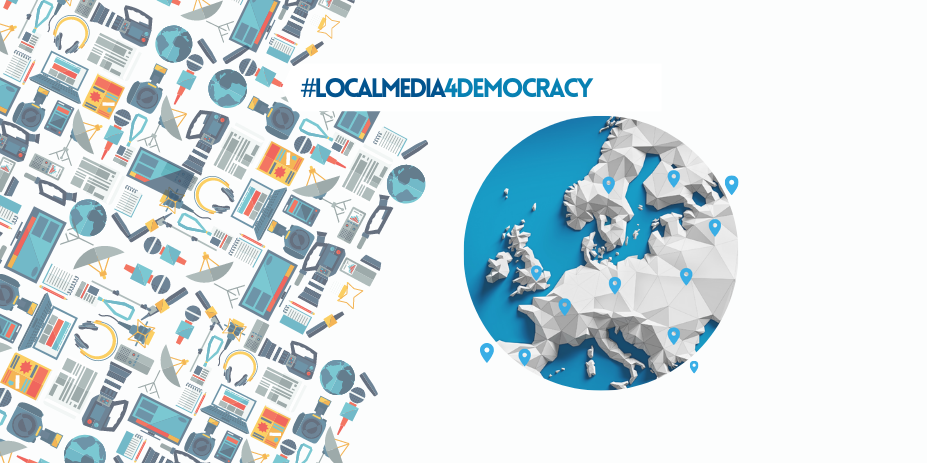
Read more
Blog, News
New article: The spectacle of press freedom in Central Europe
“Press freedom must be in a pitiful state if only ‘so few’ places are vilifying me,” Hungary’s Prime Minister Viktor Orbán ironically remarked in one of his social media videos in the summer of...
The Centre for Media Pluralism and Media Freedom will identify emerging ‘news deserts’ in Europe and map risks for local media.
‘News deserts’ are areas where citizens have very limited access to reliable news and information due to the absence of local, regional and community media. These media are vital for the creation of a democratic culture in any country, as they provide stories of relevance to local communities, show the impact of national issues on the local level, and ensure political accountability.
Their current crisis, aggravated by the changed consumer habits and falling advertising revenues, represents a major threat to media pluralism in Europe.
The new EU-funded project “Local Media for Democracy” (#localmedia4democracy) aims to revive the local media landscape in the news desert areas with measures to build resilience, independence, and sustainability by improving their capacity in innovation, business strategies, and audience engagement.
The project will be led by the European Federation of Journalists (EFJ) with a consortium of partners, the Centre for Media Freedom and Pluralism (CMPF), International Media Support (IMS) and Journalismfund.eu. It will inject €1,200,000 in financial support through a Media Funding Scheme to at least 30 local, regional and community media who are struggling to serve the public interest in places where access to information has significantly decreased. The selected media will also receive technical and mentorship support to improve their organisational capacity, journalism innovation and business sustainability.
A mapping research on news deserts in Europe will be carried out by CMPF with the aim to provide quality and comprehensive data on the “desertification” of EU local media so that policy-makers can make useful media policies to support regional, local and community news media.
“The crisis of local, regional and community media with the rise of ‘news deserts’ in the EU has negative political, social and economic implications for our society and our democracy,” says Professor Pier Luigi Parcu, Director of the CMPF. “We are honoured to contribute to this vital project that seeks to invert the trend, supporting it with our academic expertise and network of researchers”.
Maja Sever, the EFJ President says, “The existence of a vibrant and independent local media ecosystem serving the public interests of its local communities is a cornerstone for our democratic societies. We welcome this support from the Commission recognising the importance of local media. Hopefully, this will create a trickle-down effect to draw more support from national governments and institutions to local media, enabling local journalists and media to better serve their communities.”
“As local news media disappears, democracy takes a hit whilst disinformation and partisanship prevail. It is high time to preserve local journalism – journalism and reliable news and information on the ground that is so important for citizens to sustain democracy and human rights and hold the power to account” says Gulnara Akhundova, Regional Director for Eastern Europe and Global Response Department at IMS.
Ides Debruyne, Managing Director of Journalismfund.eu argued, “Strong local media supports our democratic process in a number of crucial ways. The most crucial one is that a local news source contributes to the development of a common culture. The financial difficulties local journalism faces have been well-documented. At the same time, the market for local news stories of wide interest that are supported by volume-based advertising is fast declining. We anticipate that this new project will give the most thorough proof of the scope of the news deserts issue facing local communities to date.”
The project is co-funded by the European Commission (DG CONNECT). It will start on 1 February 2023 for a period of 18 months. Two calls for proposals will be published in March and July 2023 for local, regional and community media located in the news desert areas to apply.



